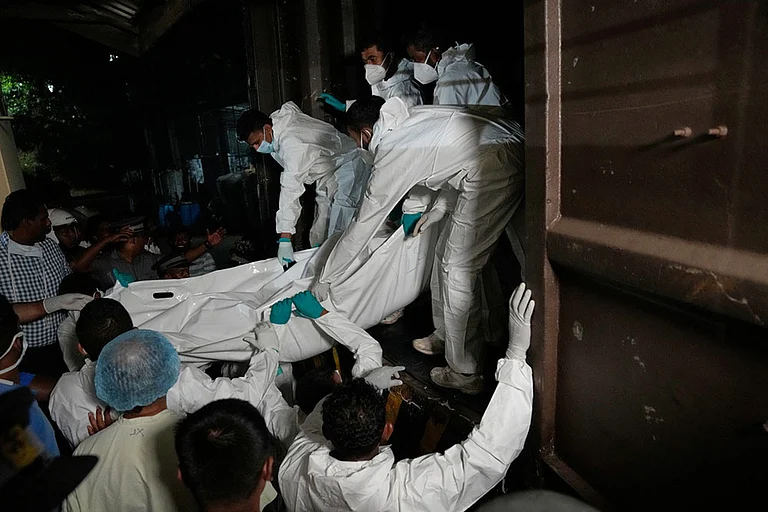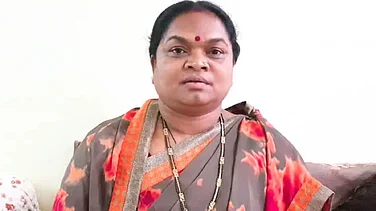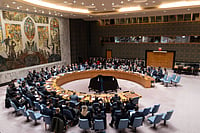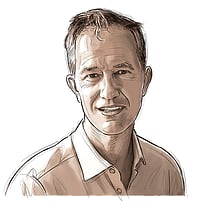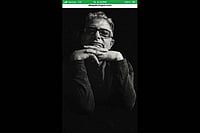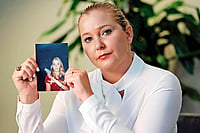Of Sickness and Health
French writer Marguerite Duras once described writing as ‘‘a kind of illness’’ in an interview. Apart from this ‘illness’, which struck quite early in life, I hadn’t suffered from any serious disease as a child or an adult. That is, until I was diagnosed with a severe case of typhoid about a month ago.
Like the rest of humanity, I’ve had my share of headaches and fevers over the years. Headaches come and go (talking of Michelangelo). Best not to make a fuss about them. As for fever, there is always paracetamol in stock at the familiar neighbourhood chemist’s store. I manage to stay away from doctors. To dodge them—to be more accurate. It’s nothing personal. Doctors across the world who are snowed under their patients’ demands are fine people. The best of the best. My avoidance strategy is an inherited tic. Growing up, I saw my parents steer clear of doctors and hospitals unlike most of the adults in their social circle. Doctors came into the picture only when there was some sort of life-threatening emergency. Otherwise, it was all commonsense measures and home remedies—ginger and green tea, lemon and honey, turmeric, garlic, grandma’s potions—gulp them down, keep calm and carry on.
Anyway, back to last month. After failing to shake off a fever for a week and feeling quite wretched, I let my sister drive me to the hospital. The doctor ordered a few tests. The report confirmed the doctor’s suspicions: typhoid. The bacterium had not only invaded my system, it was thriving at an alarming pace. Pills wouldn’t work. Antibiotics had to be injected into my body to fight off the invader. Like a brazen colonising power barging into a sovereign nation, Salmonella Typhi had taken complete control.
A Foreign Country
I felt betrayed by my body. Why was it playing host to this pest? Why hadn’t it sounded a louder warning? Why had I, the sole inhabitant of this body, suddenly become so powerless to control it?
I crossed over from the world of the well to the world of the sick. Curled up on a hospital bed covered with a starched white sheet, the distinction felt painfully real. The soft-spoken nurse sticking a needle in my arm, scouting for a vein, referred to me as “the patient”. My sister, hovering by the bed, pale with worry, became “the bystander”. This is hospital protocol. Patients are patients. Accompanying family members or friends are called bystanders. Words make it clear that the sick are in a world of their own. The rest are bystanders from the world of the healthy. Hartley’s immortal lines popped up in my feverish brain that night: “The past is a foreign country. They do things differently there.” Replace “the past” with “illness”. The lines apply…
There was a beautiful garden in the hospital’s backyard. Well-tended, shaded by green canopies. From my third-floor window, I could see the treetops swaying in the breeze. The sun setting, amber and gold, behind the branches. Patients were not allowed to walk in the garden unless accompanied by hospital staff. And overworked nurses and orderlies didn’t have the time to spare to accompany anyone on a stroll. So, nature had to be communed with from a distance. Like a lover so close, yet so far away. I imagined my fellow sufferers, housed in different floors of the hospital building, peering out of windows, yearning to walk barefoot on the grass, savouring the imagined pleasure of strolling on that patch of green.
The Possibility of Healing
We could walk up and down the hospital corridors unsupervised. A few rounds in the mornings and evenings. Arms punctured with needles, slowed down by casts, slowed down by sickness, we formed a slow but steady procession. I felt a sense of solidarity with everyone I walked past. We were too addled by antibiotics to strike up conversations. We nodded at each other, acknowledging each other’s plight, and presence, before moving on.
Recovery seemed like a faraway prospect some mornings. Feverish, hallucinatory nights beat you down. But the nurses who came by with fresh syringes and medicines were full of smiles. The doctor sounded confident about the antibiotics working. It was just a matter of time. The bacterium would lose the fight soon. The trick was to keep one’s hopes up. To take it one day at a time. To believe that recovery was not a mirage. To trust in the possibility of healing.
(This appeared in the print as 'Recovery Diary')
Vineetha Mokkil is Assistant Editor, Outlook







